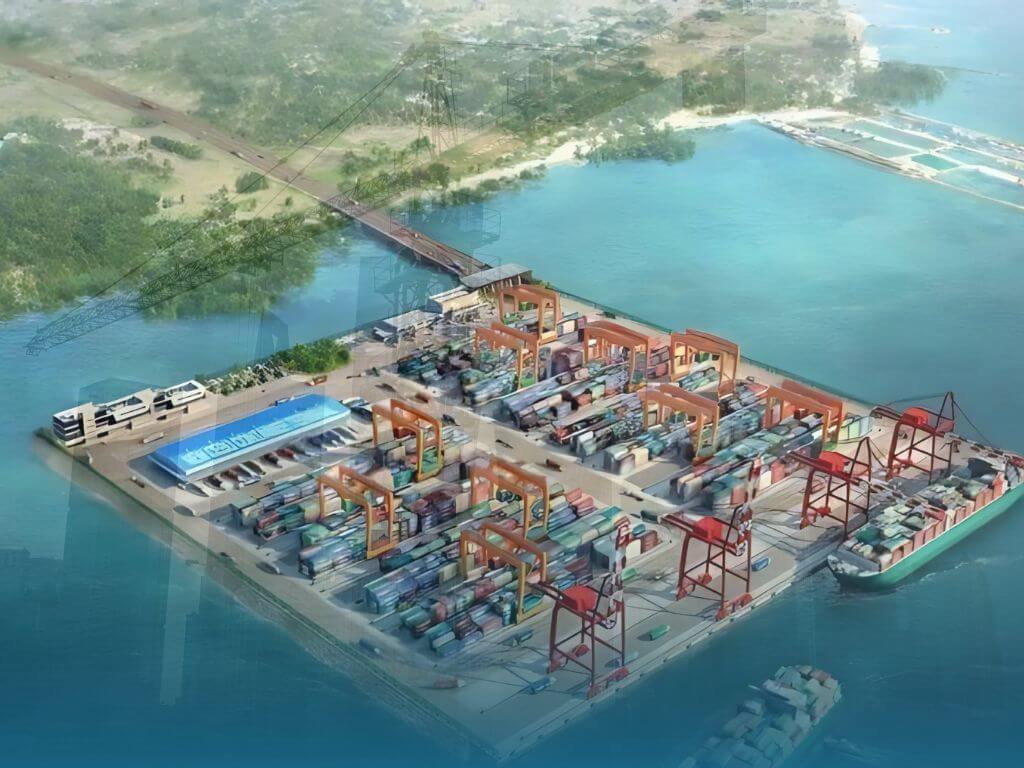

These include the Cebu Bus Rapid Transit (BRT) Project which is expected to be completed by 2027, but its operations and maintenance will extend beyond 2028.
The other projects in the pipeline but are slated after the term of President Ferdinand Marcos Jr. are:
BRT operations and maintenance
4th Cebu-Mactan Bridge and Coastal Road Construction Project
Consolacion-Liloan Bypass Road Project
New Cebu International Container Port (NCICP)
Metro Cebu Expressway project
Upgrade and expansion of the Bohol-Panglao International Airport
Panglao-Tagbilaran City Offshore Bridge Connector
Cebu Urban Mass Rapid Transit (MRT) Central Line
Panglao-Tagbilaran Bus Rapid Transit (BRT)
While there are 32 infrastructure projects lined up for Region 7, these 10 were specifically drawn for Cebu and Bohol.
“These 10 projects are considered region-specific physical-connectivity developments based on the Urban Transport Masterplan by the Japan International Cooperation Agency (JICA) in 2019,” said Jennifer Bretaña, regional director of the Department of Economy, Planning, and Development-Central Visayas (DEPDev-7).
Integrated transport plan
“The main strategy is internodal, multiple nodes for all types of transportation from walking to bicycle to public transport – jeepney, buses, and the higher level would be the BRT and MRT,” Bretaña explained.
She noted that the plan is simple: commuters can take a jeep or walk to the nearest BRT station, transfer to buses, and connect to an MRT station if needed. Private vehicles would be diverted to bypass roads, leaving central routes for public transport.
BRT was not intended as a stand-alone system. “Since MRT was too expensive, it was only prudent to start with BRT first,” Bretaña said.
Cebu MRT and BRT systems
The proposed Cebu MRT will be an underground railway spanning 67.5 km from Danao City to Carcar City, plus a 25-km extension to Lapu-Lapu City. Costing ₱199.62 billion, it will be funded via Official Development Assistance (ODA).
The ₱28.78-billion Cebu BRT, funded by the World Bank, runs along a 17-km segregated line from Barangay Bulacao to Cebu IT Park. Package 1 is slated for a test run next month—13 years after NEDA first approved it in 2012.
Its operations and maintenance will eventually be funded through a Public-Private Partnership (PPP) but will only be completed after 2028.
Another Cebu-Mactan Bridge
To ease traffic on Mactan Island, the 4th Cebu-Mactan Bridge—costing ₱76.41 billion funded through ODA-Japan—will connect the island to mainland Cebu.
This 3.34-km bridge, with a 2.17-km viaduct, includes the Mandaue Coastal Road (5.43 km). Currently, the project awaits renewal of its Environmental Compliance Certificate.
Container port and bypass road
The ₱16.93-billion NCICP in Consolacion broke ground in February 2024 but was only 3.2 percent complete as of June. Built on a 25-hectare reclaimed site, it aims to decongest the Cebu International Port.
A complementary ₱32.74-billion Consolacion-Liloan Bypass Road, also ODA-Korea funded, will link the new port to the Mandaue Coastal Road and Liloan pier.
Metro Cebu Expressway
The ₱94.07-billion Metro Cebu Expressway, a 33–58 km six-lane road from Naga to Cebu City, was delisted from the IFP pipeline after the provincial government sought to manage it.
The project faced delays after a landslide damaged Section 3a in Naga City. The Department of Public Works and Highways (DPWH) will fix the damaged stretch, while the province handles the remaining segments.
It is recommended for delisting from the IFP pipeline as the provincial government of Cebu proposed to implement it.
Bohol projects
The last three projects in the IFP pipeline are located in Bohol.
The first is the proposed Panglao-Tagbilaran Bus Rapid Transit (BRT) system, a 27-kilometer high-capacity line that will connect Bohol-Panglao International Airport to the capital city of Tagbilaran and nearby areas.
Estimated to cost ₱18.15 billion, the project will be funded through the General Appropriations Act (GAA) and remains at the pre-preparation stage.
Another major undertaking is the Panglao-Tagbilaran City Offshore Bridge Connector, a ₱10.78-billion project funded by official development assistance (ODA) from France.
The four-lane, 1,032.9-meter main bridge will link mainland Bohol to Panglao Island. While approaches and smaller offshore spans have already been completed, the main bridge itself is still awaiting construction.
The third project involves the upgrade, expansion, and long-term operations of the Bohol-Panglao International Airport. Valued at ₱4.53 billion, the project is being implemented through a public-private partnership (PPP) and has been awarded to Aboitiz InfraCapital.
The scope includes enlarging the passenger terminal area, expanding associated infrastructure and facilities, and upgrading airside systems to boost capacity and service efficiency.

Contributor
